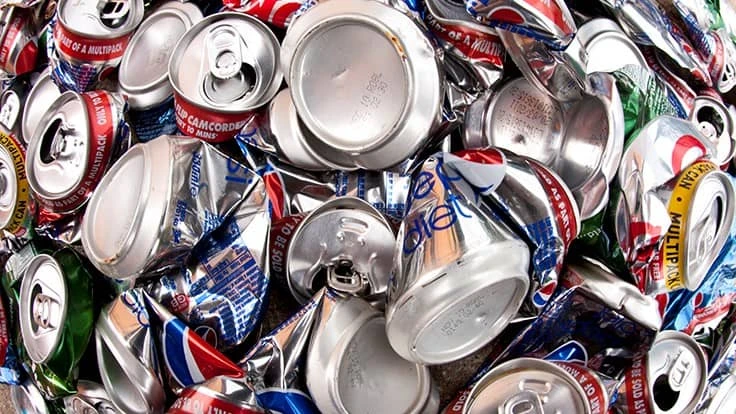
Steve Allen | Dreamstime.com
A single-stream material recovery facility (MRF) operated by Rivers Recycling in Kilgore, Texas, has received a grant that allows it to sort aluminum used beverage cans (UBCs) with an eddy current rather than by hand. The grant was funded by can manufacturers Ardagh Metal Packaging and Crown Holdings. The installation of the eddy current separator will result in the recovery of 4 million more UBCs annually, 50 percent more than the MRF was capturing by hand sorting, according to a news release issued by The Recycling Partnership and the Can Manufacturers Institute (CMI).
The MRF, the fifth to receive funding from a grant program facilitated by CMI, processes roughly 18,000 tons of material per year from the east Texas area. CMI partnered with The Recycling Partnership to evaluate and select the grantees, execute the grant program and provide technical assistance to ensure successful implementation.
The environmental and economic impact of recovering and recycling these UBCs is significant, the CMI and The Recycling Partnership say. Recycling 4 million additional UBCs will generate more than $65,000 in new annual revenue and produce enough energy savings each year to power 1.5 million U.S. homes for one hour. Further, the carbon dioxide equivalent emissions avoided each year will be the same as is generated from charging more than 47 million smartphones.
The first four grantees in the program were the city of Milwaukee and Waukesha County, Wisconsin; Curbside Management, Asheville, North Carolina; GEL Recycling, Port Orange, Florida; and Independent Texas Recyclers, Houston. Collectively, the equipment installed from the five grants will result in an additional 71 million aluminum cans recycled every year, the CMI and The Recycling Partnership say. The impact of 71 million aluminum beverage cans recycled is more than $1.15 million in revenue for the U.S. recycling system and energy savings that could power more than 28 million U.S. homes for one hour.
"Aluminum cans enjoy widely recyclable status and industry-leading recycled content rates,” says Keefe Harrison, CEO, The Recycling Partnership, Falls Church, Virginia. “Yet, there is still a lot of valuable material lost in homes and at MRFs. We are happy to partner with CMI, Crown and Ardagh on this grant program, delivering swift and impactful solutions that further increase successful can capture. The Recycling Partnership applauds their investment, and we look forward to continuing to partner with the aluminum can industry to improve the system and support their circularity goals.”
“Can Manufacturers Institute members Ardagh and Crown are funding strong improvements at MRFs that ensure many millions of infinitely recyclable aluminum cans are recycled annually,” says CMI President Robert Budway. “The can industry grants show the financial and environmental benefit of purchasing equipment that captures more UBCs. Importantly, while the can industry will seek to further catalyze installation of additional can capture equipment, government funding and recycling facility investments should also focus on infrastructure that captures more high-value material like cans.”
Earlier this year, the CMI and its members, which include can sheet producers and beverage can makers, announced ambitious U.S. recycling rate targets that include a 70 percent recycling rate by 2030 and a 90 percent rate by 2050. The UBC recycling rate was 45 percent in 2020.
CMI, which is headquartered in Washington, has set the targets, outlining its approach for attaining them in four action pillars:
- catalyze the passage and implementation of well-designed deposit systems at the state and federal levels;
- increase and improve household and away-from-home recycling;
- ensure that more cans are properly sorted at recycling centers; and
- increase consumer understanding of the importance of aluminum can recycling and the ability to collect and sell used beverage cans for cash.
Latest from Waste Today
- Meridian Waste acquires NC hauling firm
- SWANA webinar focuses on Phoenix recycling collaboration
- IntelliShift honored at IoT Breakthrough Awards
- Glass Packaging Institute applauds regulation change
- Paper recycling is focus of 2 January webinars
- Disruption likely for material flows in mid-January
- Florida composting event takes place at worksites
- NC State research could improve predictions for solid waste management





